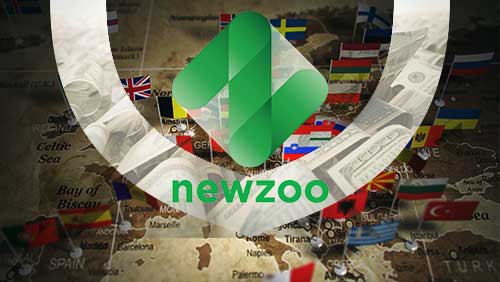The esports market stat monsters, NewZoo, have released a white paper looking at four major European countries while asserting an optimistic view that the industry could be worth $2.4bn by 2020.
“Dad, how crap is Sami Khedira?”
“Well, it depends on how you rate the guy,” I explain, taken aback by the question. “He’s a destroyer, chosen to break up the play, so if you are looking for him to do that then he’s great, but if you’re looking at him to get you ten goals a season, then he’s crap.”
“Exactly,” said my boy. “He’s just banged two past me, and he’s a CDM, it’s ridiculous.”
In my day when you played in midfield, it was either right, left of centre. Today, the game has more positions than Kama Sutra and more acronyms than those handed out for mental illness in the United States of America.
And it all comes from video games.
I can’t have a single conversation with my first born with him looking me in the eye because he’s always playing a game of FIFA.
Video gaming and esports in Europe is big business, and esports market intelligence geniuses, NewZoo, has just released a 19-page White Paper allowing you to get a little more intimate with the numbers.
Here’s a synopsis for you.
The Whitepaper
The paper carries a rather lengthy title:
An Overview of Esports in Europe: Featuring an In-Depth Look at Four of Europe’s Most Vibrant Esports Ecosystems
Here are those four countries.
Sweden
Poland
Spain
Germany
The team believe that the next two-years will be crucial when it comes to the industries attempts to become a multi-billion dollar business.
The pessimistic view is that the esports industry will be worth $1.1bn in 2020. The base view is $1.5bn. But there is a more optimistic view of $2.4bn.
So what does the industry have to do to hit the optimistic target?
Critical Success Factors
1. The success of local leagues and the franchising approach.
2. Implementation of regulations.
3. The arrival of new game formats and competition.
4. Uptake of content right sales.
5. Team profitability.
6. Industry convergence involving traditional media, entertainment, telecom and sports companies.
Go Team Europe
Europeans account for almost a third of all global esports revenues, and 70 million esports viewers watch the Orcs, soldiers, and what-not from a European base.
Europeans will generate $22 billion in game software revenue by the time Santa has given up falling through chimneys, the vast majority of which comes out of my pocket because of my kid’s addiction to FIFA.
77 million Europeans will watch esports across Europe this year, and European media rights will grow 500%+ between now and 2020.
Nation by Nation
Germany – 240.5m online population, 13.1m esports enthusiasts
Poland – 232.3m online population, 10.9m esports enthusiasts
Spain – 98.7m online population, 8.4m esports enthusiasts
Sweden – 30.6m online population, 1.6m esports enthusiasts
Europeans (34.4m of them) account for 20% of the global esports audience. Newzoo expects that to grow to 45m by 2020. European revenue is forecast to hit $209m this year (+27.3% YoY & 32% of global revenue). Expectations are for that to rise to $403m (+32.3%) in 2020.
The Talk of the Town
One of the great things that esports has going for it, when you compare it to poker, for example, is the interest of some of the most prominent brands in the world. English Premier League (EPL) champions in waiting, Manchester City, has an esports team, as do the La Liga side Valencia, and most of the French Ligue 1.
Non-endemic brands made up 69% of the interest.
Look at these monsters:
BMW
Mercedes-Benz
Vodafone
Visa
And there has been some significant interest from European betting companies such as Unibet, Betway, Sportsbet, and PVP.ME. Betway sponsors the Swedish esports side Ninjas in Pyjamas. While esports betting numbers don’t feature in the report, NewZoo stated in their last global white paper that esports betting is a blue ocean of opportunity recognising that the esports betting revenue numbers would dwarf any numbers we see on this page.
And NiP has been chipping in with a lot of Swedish taxpayers Krona.
Here is the revenue earned, and the number of registered pros
Sweden – $22.3m earned by pros, 1,836 players ($12k per player)
Poland – $6.7m, 1,086 players ($6k per player)
Spain – $2.2m, 689 players ($3k per player)
Germany – $13m, 2,317 ($6k per player)
The figures show that it’s highly likely that the top gamers receive decent salaries, but the rest are working for peanuts.
One interesting final stat:
26% of viewers don’t play the games.
If only that were true of my boy, it might save me a few quid.